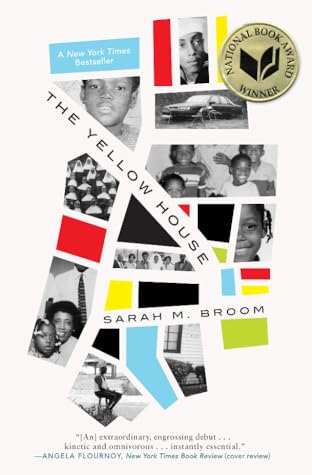More on this book
Community
Kindle Notes & Highlights
When you are babiest in a family with eleven older points of view, eleven disparate rallying cries, eleven demanding and pay-attention-to-me voices—all variations of the communal story—developing your own becomes a matter of survival. There can be, in this scenario, no neutral ground.
My mother is always saying, Begin as you want to end. But my beginning precedes me. Absences allow us one power over them: They do not speak a word. We say of them what we want. Still, they hover, pointing fingers at our backs. No place to go now but into deep ground.
But Joseph, Elaine, and Ivory had only to walk to the curb outside their Roman Street house to see Taylor Park and its sign: NO NIGGERS, NO CHINESE AND NO DOGS. It was a strange sight, the mostly empty, fenced-in park in a black neighborhood. If the neighborhood children wanted a park to run around in or a pool for swimming, they had to travel to Freret Street’s Shakespeare Park, several miles away.
She wasn’t black to me. She was my mama and my mama wasn’t black. Looked to me like they was trying to make my mama like the black people I didn’t like.
“I’m sitting there thinking, ‘We didn’t leave town?’” says Walter now. “That’s when I found out that the East was part of New Orleans.”
And then you see the lives of the children and they become the living people of the house, the house lives in them. They become the house instead of the house becoming them. When I look at you all, I don’t really see the house, but I see what happened from the house. And so in that way, the house can’t die.
Remembering is a chair that it is hard to sit still in.
I had no home. Mine had fallen all the way down. I understood, then, that the place I never wanted to claim had, in fact, been containing me. We own what belongs to us whether we claim it or not. When the house fell down, it can be said, something in me opened up. Cracks help a house resolve internally its pressures and stresses, my engineer friend had said. Houses provide a frame that bears us up. Without that physical structure, we are the house that bears itself up. I was now the house.
“One important reason to travel the world is so you know how to speak about things,” I wrote in a notebook. “So that there exists in one’s mind a system of comparison so that one can realize, finally, and most importantly, that it is true: no one thing exists unto itself and that is finally, I suppose, why I came here.”
Michael worked as a chef at Jacques-Imo’s for six years before the Water. He helped build the menu, became part of the place’s appeal and expansion, and wanted to return to help Jacques-Imo’s reopen, but the owner wouldn’t help him (financially) relocate back to the city that Michael, more than all of us, has forever loved.
He was glad Eve Ensler had chosen to return to the city, of which he was, in his words, a “vagina-friendly mayor.” The moment he said it I began composing notes for a response in my head.
Being watched without knowing it is such vulnerability.
Who has the rights to the story of a place? Are these rights earned, bought, fought and died for? Or are they given? Are they automatic, like an assumption? Self-renewing? Are these rights a token of citizenship belonging to those who stay in the place or to those who leave and come back to it? Does the act of leaving relinquish one’s rights to the story of a place? Who stays gone? Who can afford to return?
some people walked in, saw Uncle Lionel seeming to lean against a French Quarter streetlamp wearing his customary sunshades, and ran out thinking Uncle Lionel was alive again and walking. The undertakers had made embalming history by presenting the corpse upright, it was reported in the local news, a coup for the funeral home, whose competitors all came by to figure out exactly how it had been done.
“What’s the difference between a father and a brother?” He tried to explain, but his words fell short. “A father was tougher, more responsible for steering the child …” He trailed off. I could tell he didn’t really know how to answer, but he couldn’t say that. I thought his description of a father was similar to my definition of a brother.


